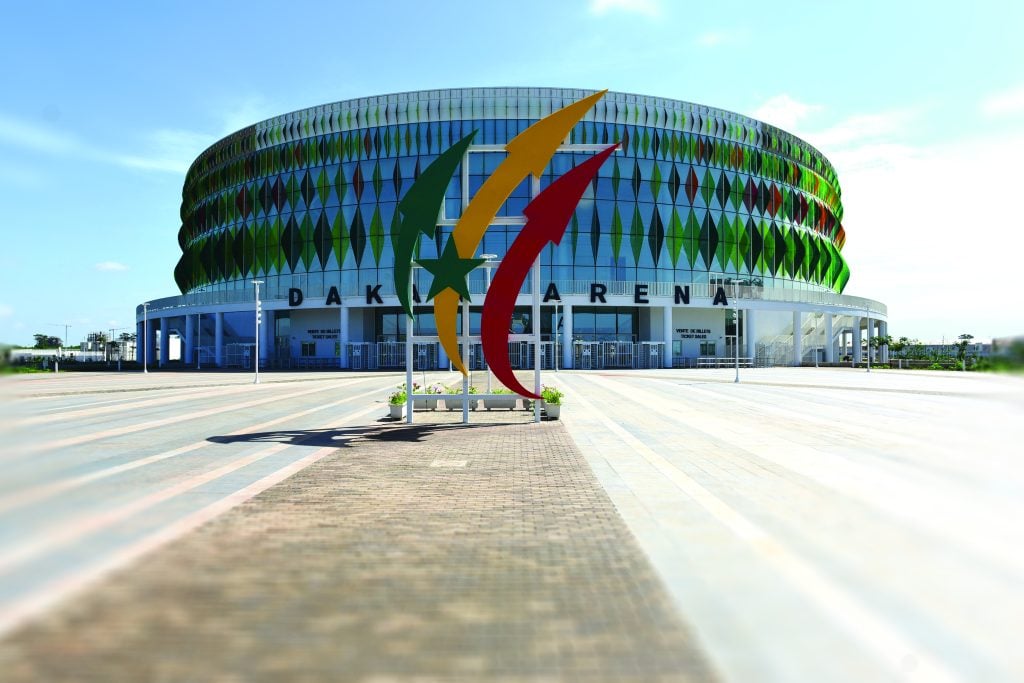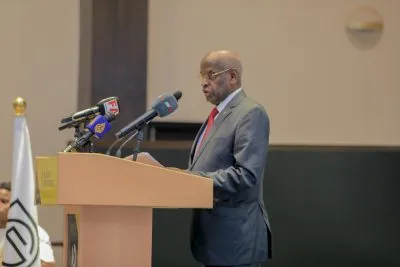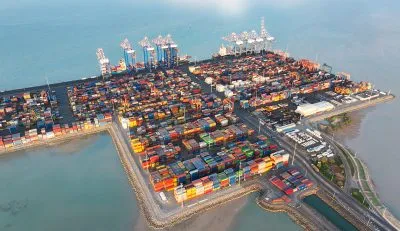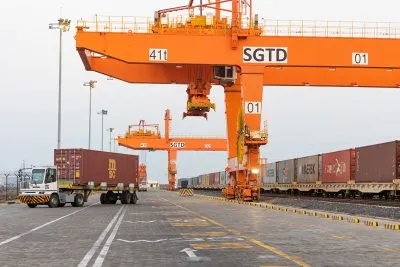This article was produced with the support of BOS PSE
African Business: What are the functions of the Operational Monitoring Office of the Plan for an Emerging Senegal (BOS PSE)?
The mission of the Operational Monitoring Office (BOS) is the coordination, monitoring, resolution of bottlenecks and evaluation of the performance achieved in the Plan for an Emerging Senegal (PES), which aims to make Senegal an emerging market economy in the near future.
The BOS is the control tower for strategic actions. Its information and decision-making tools are examined each week by the Council of Ministers. It also evaluates the real impact of public policies on the beneficiary populations.
The BOS acts as a consultancy and support agency for all state structures in the implementation of their flagship actions, as well as providing assistance to the private sector.
Ousseyni Kane: President Macky Sall set up the PES in 2014. How successful has it been so far?
The first 10-year implementation phase of the PES is based on two Priority Action Plans, namely PAP I (2014-18) and PAP II (2019-23).
The first operational phase saw sustained growth of 6% on average per year, driven by the tertiary sector, followed by the secondary and primary sectors. This growth made it possible to reduce Senegal’s poverty rate by 5%, from 42.8% in 2011 to 37.8% in 2018. As a result, Senegal has the lowest poverty rate in the countries of the West African Economic and Monetary Union (WAEMU).
Over the 2019-22 period, average annual growth was 4.4%. The exploitation of oil in 2023 should make it possible to achieve a much higher level of growth in the future.
This first decade has clearly demonstrated that the PES is a success. Nearly 10 years on, it is undeniable that Senegal presents a very different picture to the one it did in 2014.
Two key factors underly the success of the PES. It brings a focus to projects and reforms that avoids dispersion of efforts. It also monitors success in all sectors of the economy – including energy, infrastructure, services, mining and agriculture, and social areas – and makes different actors accountable for achieving it.
The figures speak for themselves. The country has seen:
- a quadrupling of the installed electrical capacity (1787 MW in 2022);
- achievement of a rural electrification rate of 55% vs 24% in 2012;
- the completion of Dakar’s Regional Express Train project (38 km);
- the completion of 233km of motorway;
- the commissioning of Blaise Diagne International Airport, which welcomed 2.6m passengers in 2022;
- the delivery of phase 1 (Saint-Louis, Matam, Ourossogui, Kolda and Ziguinchor) of the Secondary Airports Renovation Programme;
- the construction of four regional hospitals (Touba, Kaffrine, Kédougou and Sédhiou);
- the production of 2.4m tonnes of phosphates (+ 118% compared to 2012);
- the tripling of rice production (469,649 tonnes of paddy in 2012 vs 1,409,120 in 2022);
- the creation of four special economic zones (SEZs).
At the macroeconomic level, these achievements are reflected in:
- average GDP growth of 6.6% recorded over the period 2014-18.
- GDP growth of 4.8% in 2022, despite Covid-19 and the Russia-Ukraine crisis.
What have been the main challenges and difficulties encountered?
One of the major challenges is the slow implementation of reforms. The implementation of the first 10-year phase has focused on priorities. In this respect, there have been undeniable successes in strategic sectors such as energy, health, agriculture, social affairs, etc.
However, a number of strategic reforms have not been implemented in an optimal manner. We have seen major progress, notably in the World Bank’s Doing Business Index and measures to strengthen the private sector. But some components have not made the progress desired due to the international situation and administrative holdups.
This is why the BOS has begun to structure its flagship Modernisation of the Public Service reform to give a new impetus to the implementation of the state’s priority actions. Without a strong, modern, digitalised administration that is focused on priorities our path towards middle-income status will be slowed down.
How exactly does the BOS influence government processes?
The PES monitoring and coordination mechanism allows us to trace the progress of projects and the execution of reforms with a focus on the risks and critical problems that jeopardise their implementation. It also makes it possible to structure and evaluate the impacts of flagship actions through vigorous mobilisation of the relevant ministries and project managers. This mechanism, with more than 60 people behind it, enables the BOS to interact on a daily basis with the actors involved in the implementation of these priority actions, to both challenge these activities and support them.

Has the public sector been modernised by the PES?
The establishment of a special monitoring and coordination mechanism reflects a new departure in the management of strategic projects and reforms and is thus part of the process of improving the performance of the public authorities.
The objective is to ensure a qualitative leap in the effectiveness of public investments through not only better structuring projects and reforms but also making sure they are implemented within the timeframe and budget allocated, in order to achieve the desired outcomes.
Significant progress has been made in this area, even though we recognise while the need to go much further. We have launched the Modernisation of the Public Service project in conjunction with the Ministry of Public Service and all the actors concerned. This flagship reform aims to promote productivity gains in the public administration, which are essential for building an attractive and competitive business environment.
How has the PES influenced food security in the country?
The agricultural sector is one of the priorities of the PES, with flagship projects focusing on food sovereignty.
Recent crises such as the Covid pandemic and the Russia-Ukraine conflict have shown the relevance of this strategy, which is based on improving agricultural productivity and local supply chains, increasing production and supporting research and innovation.
Significant progress has been made thanks to major public and private investments (since 2012), including:
a tripling of rice production;
- a 65% increase in millet production;
- a tenfold increase in potato production;
- a doubling of onion production;
- a 42% increase in milk production.
The increase in the budget for the agricultural programme to CFA66bn ($109m) reflects the political will to create the basis for sustainable development of the agricultural sector, in particular through:
- increasing cultivated areas;
- hydro-agricultural development;
- provision of (subsidised) seeds and fertilisers
- mechanisation of agriculture;
- financing.
In addition, there is the import-substitution strategy, the aim of which is to reduce our dependence on imports through the development of local production.
Read more about Senegal’s booming economy in our Senegal Dossier.

 Sign in with Google
Sign in with Google 



